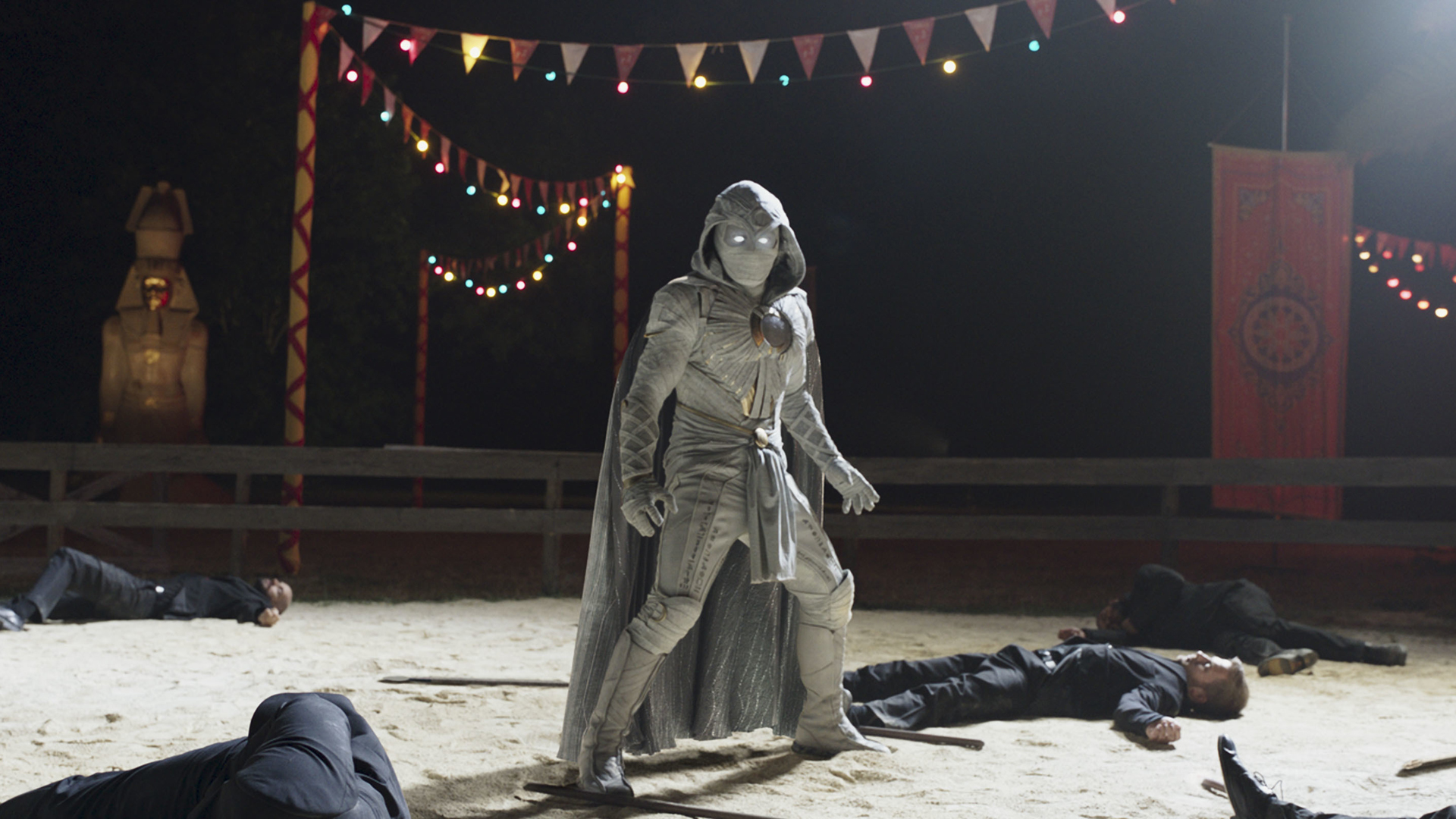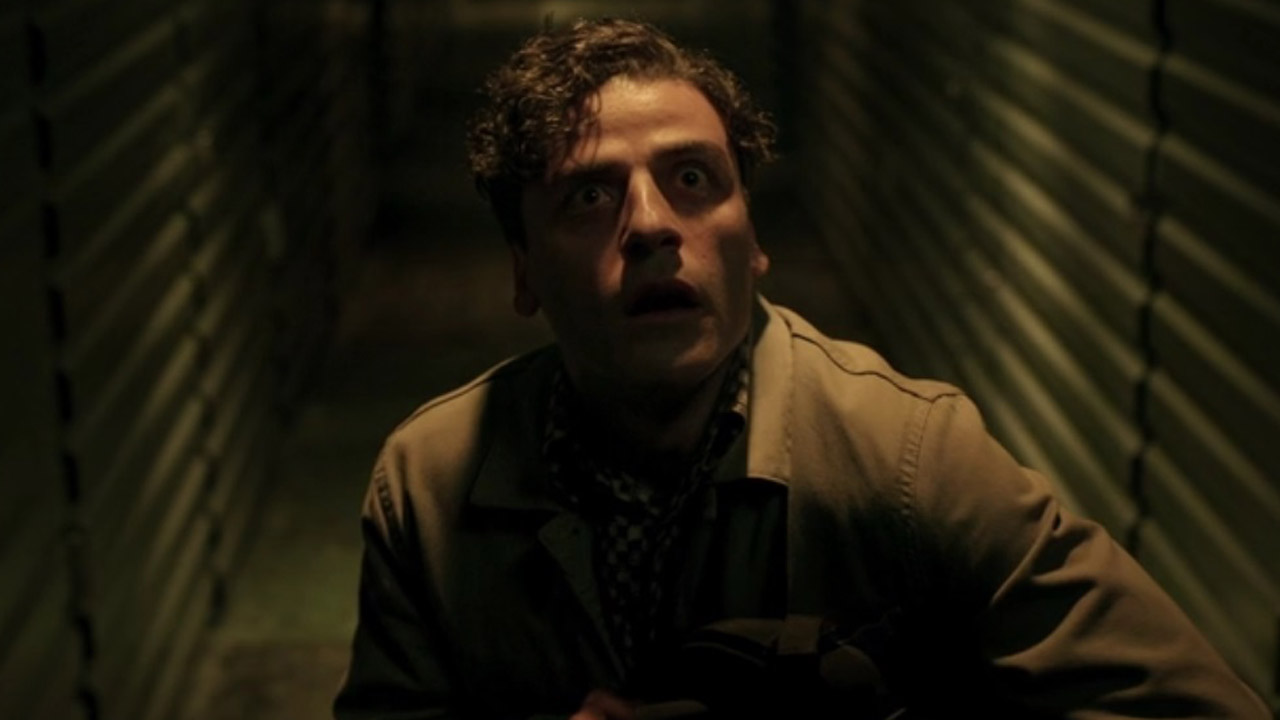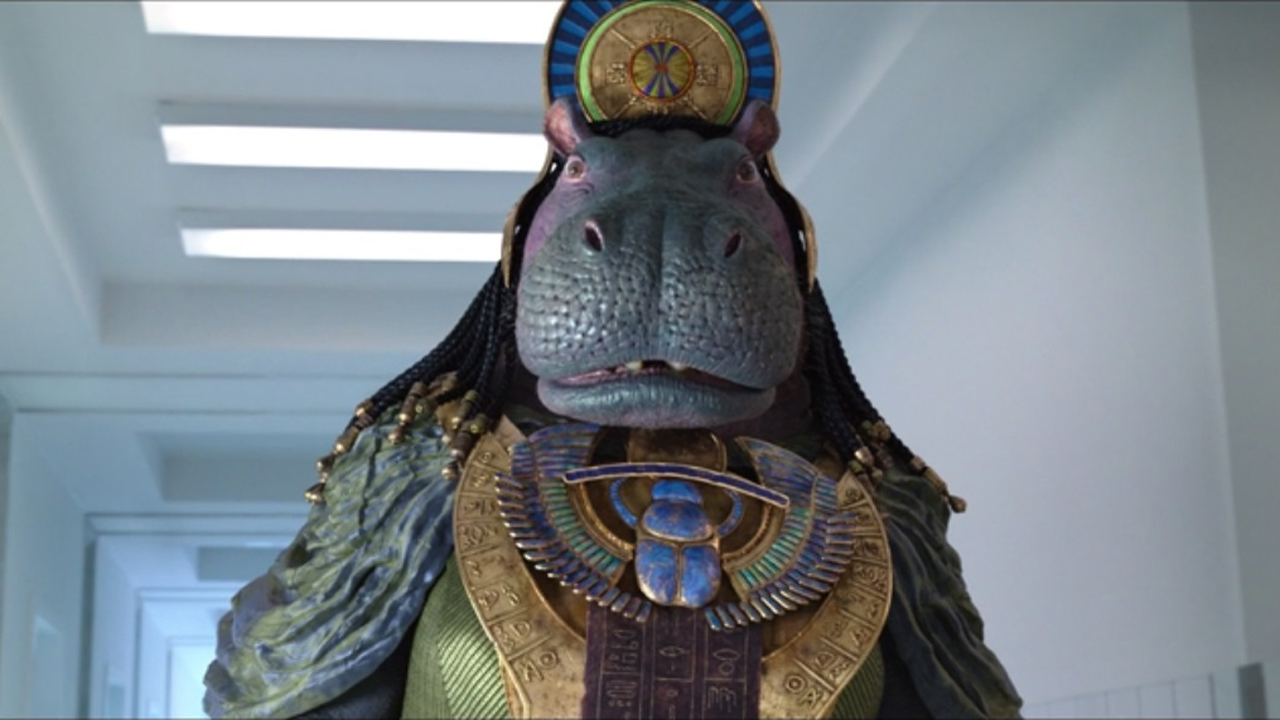Moon Knight's individuality hints at a bright new future for Marvel
Opinion: Sometimes even the biggest film franchise in history needs to switch up its successful formula

Spoilers follow for Moon Knight episodes 1 through 4.
The Marvel Cinematic Universe’s first 22 movies were among the most impressive achievements in 21st century cinema. There were ups and downs along the way, of course – nobody’s putting The Incredible Hulk and Thor: The Dark World on their best-ever lists. But the way that franchise overlord Kevin Feige marshalled all those superheroes into one coherent continuity was a masterclass in planning and execution.
Unfortunately, things haven’t been the same since Earth’s mightiest heroes thwarted Thanos and resurrected the victims of that infamous finger snap. With Iron Man and (the original) Captain America gone, the Infinity Stones consigned to history, and little sense that Phase 4 is building to another epic finale – we knew Infinity War was coming half a decade before that movie’s release – the interconnectivity that was once the franchise’s unique selling point was starting to feel like a millstone around its neck.
Then Moon Knight entered the fray. Marvel Studios’ latest Disney Plus adventure may not be the best of its TV offerings in everyone's opinion (although we really enjoyed it), but the show’s willingness to subvert the long-established MCU formula suggests a bright future for the long-running saga. Like WandaVision, Moon Knight’s made some impressively bold storytelling choices, but it also features an entirely unfamiliar cast of characters, a tone of its own and – up to episode 4, at least – near-total isolation from the wider MCU. So, could this be a glimpse at Marvel’s future?
Pushing boundaries

When Marvel Studios first started making its own movies in 2008, some observers expressed concern that Iron Man was too much of a comic-book B-lister to headline a successful franchise. That's despite him making his debut in the early ’60s, when Stan Lee, Jack Kirby and Steve Ditko were creating superhero icons for fun.
Hundreds of millions of box-office dollars quickly proved that assumption wrong, and Marvel has subsequently turned relative unknowns like the Guardians of the Galaxy into superstars. Few subsequent Marvel headliners, however, have been quite as obscure as Moon Knight, a masked vigilante with dissociative identity disorder, who gets his superhuman abilities direct from an Egyptian god.
If Marvel were taking a safety-first approach, they’d have given Moon Knight his first run out in another character’s movie or TV show, just as Echo got her screen debut in Hawkeye ahead of her own Disney Plus spin-off. Instead, they’ve thrown Marc Spector/Steven Grant (played by the brilliant Oscar Isaac) in at the deep end, without any familiar Marvel faces to assist with the introductions.
Moon Knight doesn’t even offer us the comfort blanket (aka the ultimate superhero cliché) of an origin story. In fact, the first episode embraces the fact it's breaking new ground for Marvel (as we noted in our review), intentionally leaving massive holes in the narrative where meek museum gift shop worker Steven Grant’s personality makes way for that of the mercenary Marc Spector. This is inventive, energetic storytelling, that leaves both the characters and the audience figuring things out together.
Yes, Moon Knight’s masked vigilante schtick has been seen in superhero stories since forever, but Marvel heroes – with the exception of Hulk – are usually the same person whether they’re wearing a suit or not. However, Moon Knight turns convention on its head by giving us four distinct personas (Marc, Steven, Moon Knight and Mr Knight), who bicker and don’t necessarily share the same goals. Throw in the self-interested presence of moon god Khonshu, and the traditional rules of superheroics no longer apply.
Indeed, while Moon Knight has the big-budget blockbuster sheen you’d traditionally associate with Marvel, it’s also pushing the narrative envelope further than any of its predecessors (with the possible exception of WandaVision). Episode 4’s mind-warping ending – where Marc and Steven are whipped out of their reality to come face-to-face in a mental hospital – is a genuine shocker of a twist, sharing more DNA with defiantly weird X-Men spin-off Legion than a standard comic-book actioner. And, although Marvel’s first steps into the multiverse in WandaVision, Loki and Spider-Man: No Way Home marked bold new territory for the franchise, none of them are quite as out there as Moon Knight’s latest “what is reality?” twist.
Going solo

It’s easier to be radical, of course, when your writers and directors aren’t getting sidetracked by the wider continuity of the MCU. Moon Knight is arguably Marvel’s first standalone story since Ant-Man, and up to now it’s thrived on the fact that Spector and Grant’s story arc has a definitive beginning, middle and (we hope) end.
And for all Marvel’s brilliance over the last 14 years, that’s got to be a welcome development. Few could argue that the MCU formula is broken – one of the reasons it’s the most successful movie franchise in history is that you know, more or less, what you’re getting. But, every sure fire recipe for success has an expiry date, a point where something that was once fresh and new becomes tired and repetitive.
Marvel’s not there yet but, with Phase 4 struggling to reach the heights of its predecessor, this is the perfect time to experiment and try something new. For all their dalliances with other genres – the space opera of Guardians of the Galaxy, the political thriller of Captain America, the heist plot of Ant-Man – the 27 movies and four previous TV shows of the MCU have had a remarkable consistency of tone, a mix of action, clever plotting and wit that originated in the first Iron Man movie. But as time goes on, that uniformity becomes less and less desirable.
It’s perhaps ironic, then, that after a decade of every film company trying to ape Marvel’s successful shared universe model, Moon Knight hints that the MCU may be taking a leaf out of DC’s book, where superheroes are allowed to operate with a little more independence.
It’s unlikely to have been lost on Feige and company that the quality of the Distinguished Competition’s output stepped up a gear when Wonder Woman, Aquaman and Shazam! embraced their own individual strengths, rather than trying to fit into the dark, dreary blueprint that had been set by Man of Steel and Batman v Superman: Dawn of Justice.
This freer approach has also freed DC to target different audiences, with the adult-focused Joker and The Suicide Squad sitting comfortably alongside their more kid-friendly stablemates. Moon Knight’s higher age rating acknowledges the fact that it isn’t necessarily suitable for a 10-year-old Spider-fan, while paving the way for the potty-mouthed Deadpool to make his long-awaited entrance to the MCU.
Across the multiverse

And perhaps we, the audience, need more standalone stories like Moon Knight. As Feige’s universe expands at its fastest rate ever– in the 16 months since WandaVision debuted, we’ve had more minutes of Phase 4 than Phase 3 completed in its entirety – just keeping up to date with every Marvel movie and TV shows is becoming an increasingly Herculean task. Throw in the nascent multiverse – which is about to get even bigger in the upcoming Doctor Strange in the Multiverse of Madness – and you’re dealing with levels of narrative complexity rarely seen in a mass-entertainment franchise. Even the labyrinthine plotting of Game of Thrones has nothing on the MCU.
Luckily, Moon Knight has proved that Marvel can still be Marvel without relying on its vast, interconnecting continuity. The MCU may be a feat of ingenious complexity, but sometimes it’s best to let a hero find his own way. Although, if the show does winds up setting up a Midnight Sons spin-off, of course, we’re not going to complain.
New episodes of Moon Knight debut on Disney Plus on Wednesdays.
Get daily insight, inspiration and deals in your inbox
Sign up for breaking news, reviews, opinion, top tech deals, and more.
Richard is a freelance journalist specialising in movies and TV, primarily of the sci-fi and fantasy variety. An early encounter with a certain galaxy far, far away started a lifelong love affair with outer space, and these days Richard's happiest geeking out about Star Wars, Star Trek, Marvel and other long-running pop culture franchises. In a previous life he was editor of legendary sci-fi and fantasy magazine SFX, where he got to interview many of the biggest names in the business – though he'll always have a soft spot for Jeff Goldblum who (somewhat bizarrely) thought Richard's name was Winter.
